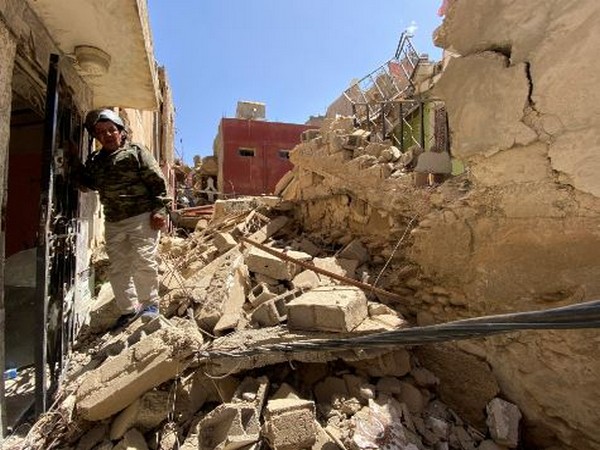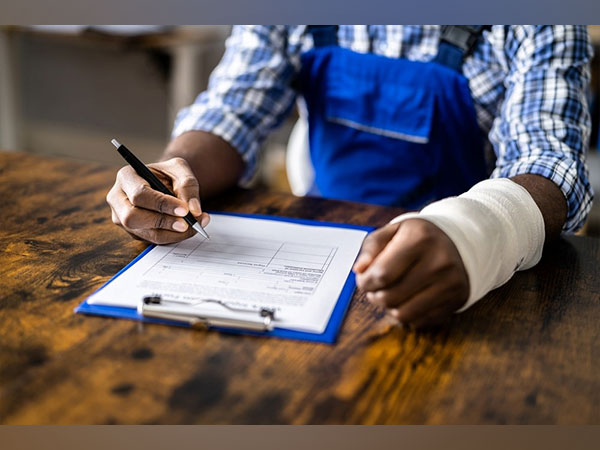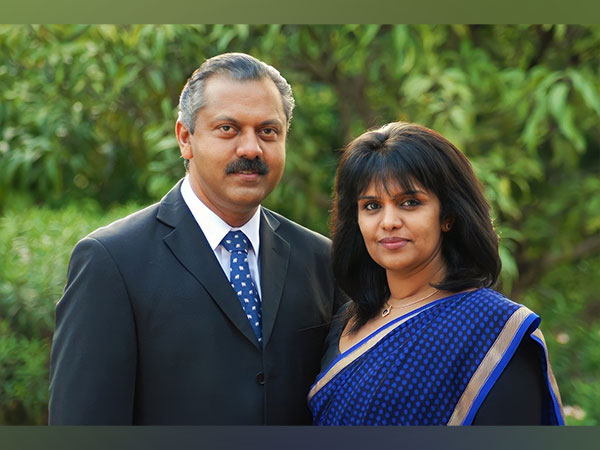
Morocco earthquake toll nears 2,700 as rescuers search for survivors
Sep 12, 2023
Rabat [Morocco], September 12: Villagers wept for their lost relatives in the rubble of their homes on Monday as the death toll from Morocco's deadliest earthquake in more than six decades rose to almost 2,700 and rescuers raced against time to find survivors.
Search teams from Spain, Britain and Qatar were joining Moroccan rescue efforts after a 6.8 magnitude quake struck late on Friday in the High Atlas Mountains, with the epicentre 72 km (45 miles) southwest of Marrakech.
The state news agency reported the death toll had risen to 2,681 with 2,501 people injured. Rescuers said the traditional mud brick houses ubiquitous in the region reduced the chances of finding survivors because they had crumbled.
Among the dead was 7-year-old Suleiman Aytnasr, whose mother had carried him to his bedroom after he fell asleep in the living room of their home in a hamlet outside Talat N'Yaaqoub, in one of the worst-hit areas. He had been about to start a new school year.
Another son, 20-year-old Mouath, had escaped by climbing through a hole in the collapsed kitchen ceiling.
Footage from the remote village of Imi N'Tala, filmed by Spanish rescuer Antonio Nogales of the aid group Bomberos Unidos Sin Fronteras (United Firefighters Without Borders), showed men and dogs clambering over steep slopes covered in rubble.
Despite the scale of the damage, he said rescuers searching with dogs still hoped to find survivors.
After an initial response that was described as too slow by some survivors, search and rescue efforts appeared to be speeding up on Monday, with tent camps appearing in some locations where people were preparing for a fourth night outdoors.
A video filmed by Moroccan outlet 2M showed a military helicopter flying over an area close to the epicentre, dropping sacks of essential supplies to isolated families.
With much of the quake zone in hard-to-reach areas, the authorities have not issued any estimates for the number of people missing.
Roads blocked or obstructed by rocks that tumbled down the steep slopes during the quake have made it harder to access the worst-hit locations. Heavy machinery has been brought in to clear roads only for subsequent rockfalls to block them again.
The harm done to Morocco's cultural heritage has been emerging gradually. Buildings in Marrakech old city, a UNESCO World Heritage Site, were damaged. The quake also did major damage to the historically significant 12th-century Tinmel Mosque.
Residents in Tinmel, a remote village closer to the epicentre where 15 people were killed, said they had been sharing food, water and medicine, but desperately needed tents and blankets to shelter from the cold mountain nights.
The mother of a 15-day-old child said she need milk formula and medicine for her baby.
It was the North African country's deadliest earthquake since 1960, when a tremor was estimated to have killed at least 12,000 people, and the most powerful since at least 1900, according to the U.S. Geological Survey.
In a televised statement on Sunday, government spokesperson Mustapha Baytas defended the government's response, saying every effort was being made on the ground.
The army said it was reinforcing search-and-rescue teams, providing drinking water and distributing food, tents and blankets.
King Mohammed VI has not addressed the nation since the disaster. Prime Minister Aziz Akhannouch told local media the government would compensate victims, but gave few details.
Morocco has accepted offers of aid from Spain and Britain, which both sent search-and-rescue specialists with sniffer dogs, from the United Arab Emirates, and from Qatar, which said on Sunday a search-and-rescue team was on its way.
The European Union said it was releasing an initial 1 million euros ($1.07 million) to non-governmental aid organisations in Morocco.
State TV said the government had assessed needs and considered the importance of coordinating relief efforts before accepting help, and that it might accept relief offers from other countries later.
Both France and Germany played down the significance of Morocco not immediately taking them up on their offers of aid, saying they did not see it as political.
Source: Fijian Broadcasting Cooperation






